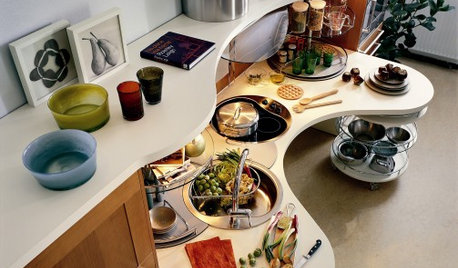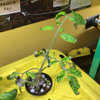New member
greystoke
16 years ago
Related Stories

Member Photos: Small Touches Make a Big Difference
Inspiring Vignettes From a Creative Houzz Member's Home
Full Story
LIFEThe Polite House: On Dogs at House Parties and Working With Relatives
Emily Post’s great-great-granddaughter gives advice on having dogs at parties and handling a family member’s offer to help with projects
Full Story
DECORATING GUIDESRoom of the Day: Something for Everyone in a Seattle Family Room
Family members downsize to a home that will shorten their commutes and give them more time together — much of it spent in this room
Full Story
KITCHEN DESIGN23 Inspiring Real-Life Kitchens
Get Ideas for Your Own Project from Creative Houzz Members' Kitchens
Full Story
5 Questions for Design Stars
Houzz Members Need Your Help With This Week's Design Dilemmas!
Full Story0

LIFETime Travel to Houzzers' Childhood Homes, Part 3
See postwar homes built by family members, rural farmsteads, cold-water flats and much more
Full Story
WORKING WITH PROS5 Steps to Help You Hire the Right Contractor
Don't take chances on this all-important team member. Find the best general contractor for your remodel or new build by heeding this advice
Full Story
INSPIRING GARDENSChickens, Chess and Swimming Star in a Silicon Valley Yard
Some fowl play is afoot in these outdoor rooms, but the family members and their many guests have a pretty good time too
Full StoryMore Discussions









bricks1962
greystokeOriginal Author
Related Professionals
Southfield Landscape Architects & Landscape Designers · Barrington Landscape Contractors · Belvedere Park Landscape Contractors · Berwyn Landscape Contractors · Cliffside Park Landscape Contractors · Doctor Phillips Landscape Contractors · Framingham Landscape Contractors · La Verne Landscape Contractors · Lady Lake Landscape Contractors · Mastic Beach Landscape Contractors · Mount Sinai Landscape Contractors · North Ridgeville Landscape Contractors · Reedley Landscape Contractors · Seven Hills Landscape Contractors · Bensenville Landscape ContractorsgreystokeOriginal Author
bricks1962
tclynx
greystokeOriginal Author
greystokeOriginal Author
tclynx
greystokeOriginal Author
tclynx
greystokeOriginal Author
greystokeOriginal Author
tclynx
greystokeOriginal Author
arjo_reich
greystokeOriginal Author
tclynx
safwat
darthhelmut
greystokeOriginal Author
tclynx